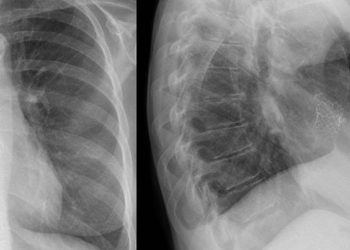Transdermal cannabidiol gel effective for children with developmental and epileptic encephalopathies
Evidence Rating Level: 2 (Good)
1. Transdermal cannabidiol gel was found to be a safe and effective treatment for children and adolescents with developmental and epileptic encephalopathies
2. Treatment with transdermal cannabidiol was associated with a reduction in focal impaired awareness seizures and tonic-clonic seizures.
Developmental and epileptics encephalopathies (DEEs) are severe, epileptiform, drug resistant seizures with early onset among infants and children. The co-morbidity rates are high among patients with DEEs and they often present with behaviour and intellectual disabilities as well as reduced motor function, respiratory infections, sleep disturbances, and increased mortality risk. DEE patients are often treated with oral anti-seizure medications (ASM) which can be challenging when taking into consideration the physical, behavioural, and cognitive barriers for these children leading to the inability to tolerate oral administration. This study aimed to address this barrier by assessing the safety and efficacy of a transdermal gel medication. Specifically, Cannabidiol (CBD) which has been shown to reduce neuronal excitability and therefore reduces epileptic seizures. Health centers in Melbourne, Australia and Wellington, New Zealand participated in the study with DEE patients aged 3-18. CBD transdermal gel was used for 6.5 months in this nonrandomized, controlled, clinical trial. A total of n=46 patients received the treatment which consisted of 4.2% CBD transdermal gel administered daily in the amount of 125mg CBD each. This dosage increased each month and was adjusted for the child’s weight. Patients were assessed for daily seizure frequency which was recorded and subsequently reported by caregivers at each visit (occurring at weeks 2, 4, 6, 14, and 26). Over the course of the 6.5 month study period, the cohort saw an overall seizure reduction of 12.3% with the highest reduction in focal impaired awareness seizures (FIAS) by 44.5%. A strength of this study was that in addition to its quantitative nature, researchers included a qualitative interview at 6.5 months with caregivers. This allowed for the collection of information regarding overall quality of life and the impact of treatment on daily activities. Caregivers reported improvements with regards to alertness (40%), increased engagement (35%), cognition (33%), and reduced fatigue (28%). The most common adverse events were related to reactions at the application site (19%) and these side effects were relatively mild. A limitation of this study was the nonrandomized nature of the clinical trial. Future studies may wish to conduct a randomized controlled trial to confirm the safety and efficacy of CBD transdermal gel. Overall, in the nonrandomized clinical trial, CBD transdermal gel was associated with a reduction in FIAS and tonic-clonic seizures (TCS) frequency.
Click to read the study in JAMA Network Open
Image: PD
©2021 2 Minute Medicine, Inc. All rights reserved. No works may be reproduced without expressed written consent from 2 Minute Medicine, Inc. Inquire about licensing here. No article should be construed as medical advice and is not intended as such by the authors or by 2 Minute Medicine, Inc.







